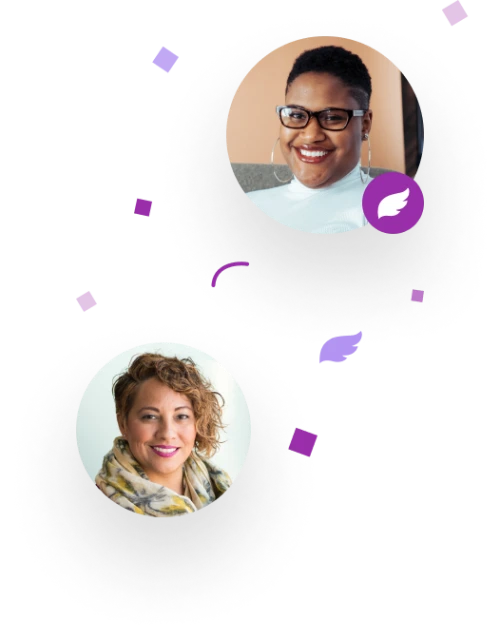How do I explain a gap in my resume due to severe depression following a sexual assault?
I was a mid-level professional in education management in a niche area that's been steadily declining. I was amazing at my job and my skills could easily translate to another industry. Problem is, I went through some personal issues - lost my job the same week I lost my partner, and then I was sexually assaulted and things were never quite the same. I went through a very severe depression with a suicide attempt. And when I say "severe depression," I mean being hospitalized for panic attacks, losing consciousness randomly, and total shutdowns of my brain where I physically can't walk or stand, let alone work. I've had a few consulting gigs here and there and took on some temporary low-wage stopgap jobs, but I've been out of work for almost two years and can't seem to find another job for the life of me. I do not want to talk about this issue publicly, and I especially don't want to address this in an interview - if I can even get called for an interview. I've been volunteering a lot and taking some courses, although not full time, so how do I address this on my resume? Most positions I'm applying to are in new industries, and you would think that going back to entry-level shouldn't be so tough, but I'm finding it impossible... thanks for your insights ladies.
Browse recent posts
If someone reached out intentionally, for coffee asking about the my role, do you think it could be related to an opportunity?
They sent a linkedin invite and messaged me right after I accepted. For context, the person is a former senior partner at a major consulting firm and may still work with them in some capacity.
I dont know them well, but they work with a vendor I know so we know of each other.
0 Likes • 1 Comment
Want some opinions from people I don't know for an outsider view: After 10 years in banking (retail and now in the investing side), I decided to get my Finance Bachelors, and I completed last month. YAY!
I didn't do it thinking it would get me a raise at work or anything. It was more of a personal accomplishment for myself.
However, now I feel like I want to get a Master's, but an MBA doesn't really interest me. All that would be nice is to maybe use those letter behind my name sometimes. ha I work in operations and am not client facing, nor do I want to be. I like working in the systems, fixing issues people have, and just problem solving in general. I was considering a Master's in Data Analytics, BUT I don't have coding experience. I would need to get at least some foundational skills to be accepted in the program. I am in my mid-30s; so still very much in the growing in my career stage, but does it make sense to try to learn coding now when I have absolutely ZERO sense about the subject and would feel like a child starting over? I honestly don't know exactly what question I am asking here. I just want some thoughts about learning to code enough to get through a data analytics program. Should I just give it a rest a keep on going with some sort of Master's in business instead?
3 Likes • 8 Comments
How to not be an end of the year martyr
So often, I’ve found myself at the end of the year, sitting alone in an empty office working while my coworkers enjoy their holidays and their time off. This was again the case last year when I came into an empty office for two weeks while most people I work with were on vacation.
Last year, I was pushed to come in to finish an end of year closing that “was very important to the company” (never mind that the people I was working with on this - many of them in higher positions than me - slowly disappeared until I was left all alone holding the bag).
So this year, I put in my end of year time off request in September. Over the past couple of weeks, I have reminded my boss of my time off several times (and he approved the request months ago). During one reminder, he actually encouraged me to take one more day off then I was already taking!
Now this week, all of a sudden he starts trying to get me to take over projects that my coworker (who will be out for two weeks over the holidays) needs coverage for. So I again reminded him that I would actually also be out most of that time as well. And he was shocked! He had completely forgotten that I had taken off some time myself and so would not be able to provide coverage for somebody else. This all came about in our team meeting, and once I reminded him he said (in front of my five other coworkers) “well who’s gonna cover all your work??”
Right now, I am fuming following that interaction. I work at a company that promotes “work life balance” but it seems like whenever I try to take time off I am given a hard time about it by my boss.
I feel like I did the right thing by asking off early and reminding him of my time off a few times over the past couple of weeks. I should also say that the coworker that he wanted me to cover for has only worked at the company for about a month so she’s been there less time than my time off request has existed. So basically when she started, she immediately asked for two weeks off, but he had already known I was taking off as well.
I really don’t know what I’ve done wrong here, but I feel like I’m being treated poorly and I’m very angry about it.
6 Likes • 8 Comments
Breaking into Director-Level Marketing Roles - Advice?
Hi - I am a senior integrated marketing and brand communications manager actively working toward director-level roles on the marketing side. Are there any mentorship programs, communities, or sponsorship opportunities you've found helpful for making the jump?
If any marketing directors or senior leaders here would be open to connecting or sharing what worked for you, I'd really appreciate it. Thanks so much!
0 Likes • 2 Comments
So how about we call the new process of attempting to get a job "G & G"? - for goading and ghosting, as it seems to be the new manner of (not) communicating.
In all my years of professional experience I have never seen such complete incompetence, lack of regard for others, disrespect, lack of common courtesy, and lack of common sense-- and these are people that have jobs! It's almost as if you've got to demonstrate yourself as an imbecile to get hired.
12 Likes • 9 Comments
The job search is evolving fast.
The people getting hired in 2026 aren’t the ones applying the most… they’re the ones adapting the fastest.
Question: What’s one shift you’re making in your job search for 2026?
https://www.linkedin.com/posts/melaniemitchellwexler_the-job-search-is-evolving-fast-the-people-activity-7407419444240617472-qfTW?utm_source=share&utm_medium=member_desktop&rcm=ACoAAAE7zOABz83nZb53qdeC66Dyj4MTQ6Hhhqw
0 Likes • 0 Comments
© 2025 FGB Muse Group Inc.


Share your insight
Join an authentic community that helps women support each other at work. Share your professional experience or ask for advice — you can even post anonymously.